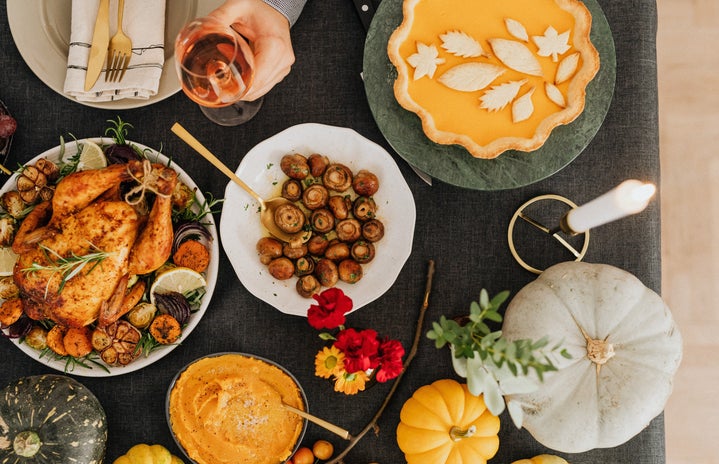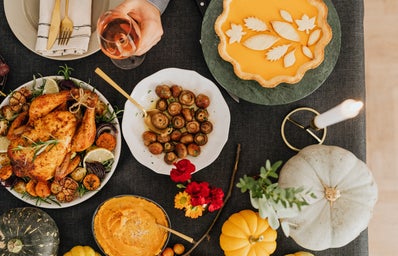On November 24th, many people, including the Black community will be celebrating around their dinner table with a feast on each of their dinner tables, just for the American-based holiday known as “Thanksgiving”. It primarily dates back to 1621, when the Plymouth colonists and the Native Americans present on the land shared a feast, which is now noted as one of the first Thanksgiving celebrations in the colonies. However, other theories state that Massachusetts Colony Governor John Winthrop, rather declared “Thanksgiving” to celebrate the safe return of the colonist volunteers who left for war where they invaded the land of the Native Americans, claimed it as their own, and slaughtered the indigenous people.
Referring to 1621, this period also dated back to the same time when the earliest ships of African slaves arrived in the colonies. Despite their newfound bondage and future centuries of beyond unimaginable torment, these Africans embraced “Thanksgiving” even during slavery. Later, when the Continental Congress announced that the 13 colonies should give thanks for their victory over the British; African slaves took part in the celebration as well. Masters would often suspend work for the slaves to celebrate allowing them to visit their spouses and children owned by different masters; Slaves who worked in the field went out to catch food for their family and close friends, while the women would prepare food like cornmeal, pone, cakes, and other food to go with their caught food. The slaves that stayed inside the house would feast on the leftovers from the “main house” that the slave owners would not finish.
Most slaves turned to Thanksgiving as a way to thank and pray to God for better days. Despite their bondage and struggles, they still gave thanks. William Covington in Our Weekly said, “There is a very good chance that at the first African American Thanksgiving dinners, there were slaves with scarred backs of raised skin, a result of the brutal discipline of the owner. There is a very good chance that at those first Thanksgiving dinners there was a little slave girl who had been violated. There is a very good chance that all individuals there had no control over their lives. But without question, there is a very good chance that at those first African American Thanksgiving dinners the slaves’ held hands and prayed to God for better days.” The holiday that the oppressors and colonizers used to celebrate the success of their narcissistic, bigoted acts of degradation and torture was now being used as an uplifting, spiritual, and hopeful holiday to pray and wish for better days.
As Black Americans, I believe we need to look back at the conditions which our ancestors went through for centuries on reflecting on how they celebrated Thanksgiving Day. Use this Thanksgiving as a day to give honor and thanks, and connect with our ancestors. Spend it with your family, friends, or significant others; our ancestors did not go through all the struggles, for us to sit around and watch football. They would be astonished if they looked at all the opportunities we’ve been granted today, and will be even more astounded as we will when we look even deeper into the future.

